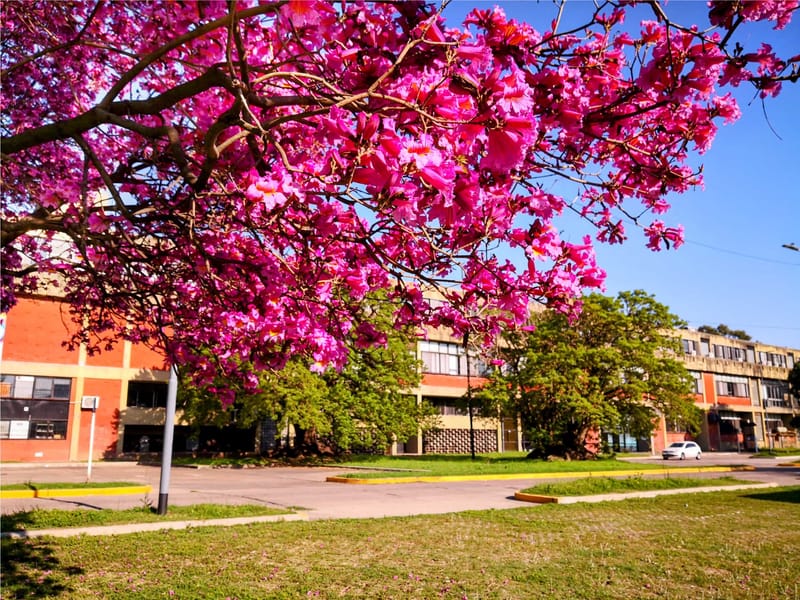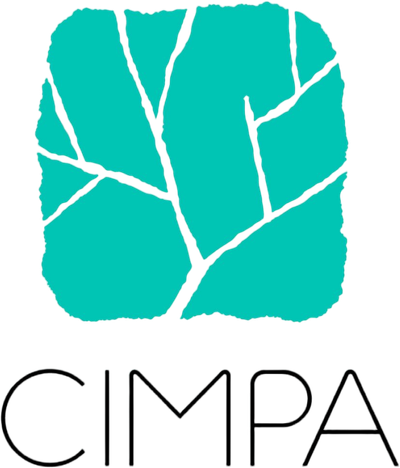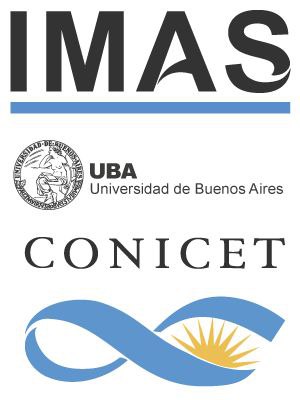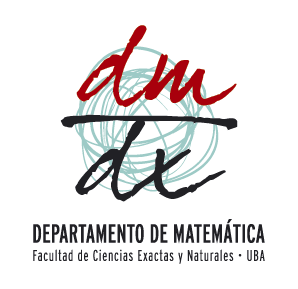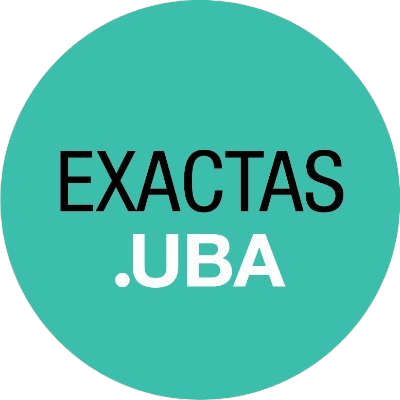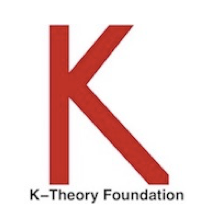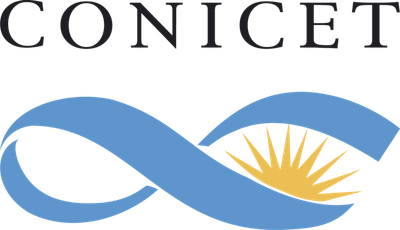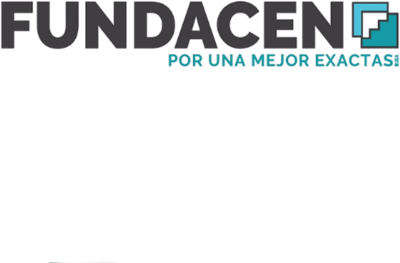K-theory and Operator Algebras
2025 CIMPA School
I Escuela CMaLP: July 28th to August 1st, La Plata
XIII Escuela de Invierno Luis Santaló: August 4th to August 8th, Buenos Aires
SCHOOL DESCRIPTION
The school aims to bring participants acquainted with the latest advances in K-theory and Operator Algebras. I will consist of 2 parts; a preliminary set of 4 virtual courses, and second part, the school proper, consisting of 8 in-person courses on more advanced topics.
The preliminary virtual courses are intended to provide participants the necessary background. They will take place syncronically 2 weeks before the school begins, so participants will have a week to digest the material. Each of these courses will be three lectures long; the lectures will be recorded. The recordings, slides and any other course material will be made available to participants.
The actual school will consist of eight courses spread along 2 weeks, with the first week taking place in La Plata and the second in Buenos Aires. Each of the courses of the first week is thematically connected with one of the second, with the first course being introductory and the second more advanced. The structure of each course will consist of 3 lectures and one problem session. In addition there will be a "gong show" each week in which participants will be given the opportunity to very briefly explain their work. In addition there will be a round table concerning gender in the mathematical profession.
COURSES
Virtual Preliminary Courses.
July 14, July 16 and July 18
1. 10:00 to 11:00
Title: Inverse semigroups, groupoids and Steinberg algebras.
Lecturer: Guillermo Cortiñas (Universidad de Buenos Aires)
Description: We will give a concise introduction to the subject of the title. Topics include:
-Inverse semigroups, examples: groups, graph semigroups, partially defined injections.
-Actions of semigroups on spaces, examples: partial actions of groups, graphs and shift spaces, universal semigroup action.
-Groupoids, examples: groupoid of germs associated to a semigroup action; graph groupoids. Slice semigroup of a groupoid.
–Properties of groupoids: ampleness, effectivity, minimality, etc. Groupoid gradings.
–The Steinberg algebra of a groupoid; gradings. Examples: Leavitt algebras, semigroup algebras. Ideal structure and simplicity theorems.
2. 11:30 to 12:30
Title: An introduction to C*-algebras.
Lecturer: Damián Ferraro (Universidad de la República)
Description: This course covers the basic theory of C*-algebras. We will present the abstract definition of such objects; the functional calculus for normal elements and use states to construct (faithful) representations on Hilbert spaces., *-homomorphisms, algebras with generators and relations, tensor products.
3. 13:30 to 14:30
Title: ∞-categories and homological algebra
Lecturer: Guido Arnone (Universidad de Buenos Aires)
Description: In this course, we will review basic concepts from higher category theory. The first part of this will entail definitions and examples of infinity categories, functors, naturality, (co)limits, and adjunctions. We will then define and provide examples of stable infinity categories. In particular, we will study the derived category of a ring as a test case for the concepts that will be introduced.
4. 15:00 to 16:00
Title: Representations of compact groups
Lecturer: Gastón García (Universidad Nacional de La Plata)
Description: Roughly speaking, a topological group is a group which is also a topological space such that the group structure maps are continuous.
A topological group G is a compact group if its underlying space is compact and Hausdorff.
Representations of compact groups share several properties with that of finite groups, for the compactness works as a finiteness condition.
In this short course we discuss the main properties and important notions of representations of compact groups, as complete reducibility of finite-dimensional representations, the Haar measure, Schur's lemma and the Peter-Weyl Theorem, among others, which we illustrate through the examples of U(1), SU(2) and SO(3).
In-person Courses
Week 1: July 28-August 1, 2025, Venue: CMaLP - Facultad de Cs. Exactas, UNLP.
C1: Bivariant algebraic K-theory
Lecturer: Emanuel Rodríguez Cirone (CBC - UBA)
Description: This course is an introduction to algebraic kk-theory, which was defined as a purely algebraic analogue of Kasparov's KK-theory. We will start by discussing its universal properties. We will then introduce a G-equivariant version of kk-theory and discuss the Green-Julg theorem, the adjointness between induction and restriction and the relation between kk-theory and the KH-isomorphism conjecture. Finally, we will look at kk-theory from a homotopical point of view.
C2: Self-similar graphs, their generalizations, and their associated algebras
Lecturer: Enrique Pardo Espino (University of Cadiz)
Description: In this course, we will introduce the notion of self-similar graphs, associated with group acting on graphs. We will define the corresponding C*-algebras using different complementary approaches, in order to understand their basic properties.
We will also analyze different generalizations that appear in the literature and, in particular, we will review the relationship of this construction with Brin's Zappa-Szép products.
C3: Quantum symmetries and applications
Lecturer: Christian Voigt (University of Glasgow)
Description: This course is an introduction to the notion of quantum symmetry, a topic with applications ranging from operator algebras, graph theory, to quantum information theory. We will cover key concepts in the area, including the definition of a quantum group, and illustrate everything with concrete examples as we go along.
C4: Homotopical algebra in functional analytic settings
Lecturer: Devarshi Mukherjee (Universität Münster)
Description: Topological vector spaces and rings have classically not interacted well with homological algebra, stemming from the foundational issue that modules over topological algebras are never abelian. This has prevented the use of categorical (or more precisely, homotopy-theoretic) methods in the study of topological algebras - which constitute the fundamental objects of analytic and noncommutative geometry. In this lecture series, we introduce two alternative approaches to functional analysis that replace topological vector spaces with categories that have better properties, namely, bornological and condensed modules. We demonstrate that both approaches yield well-behaved derived categories of suitably complete modules. Finally, we construct the subcategory of nuclear modules, which plays the role of perfect complexes over a ring in the analytic setting. In particular, the category of nuclear modules could be used as input for localising invariants such as K-theory and cyclic homology, defined in the generality of dualisable stable \infty-categories, The resulting invariants of topological algebras are presently being investigated in the context of analytic geometry and geometric topology.
Week 2: August 4-8, 2025. Venue: IMAS - Facultad de Cs. Exactas y Naturales, UBA
C1: The classification of C*-algebras associated to dynamical systems
Lecturer: Eusebio Gardella (Chalmers University of Technology and University of Gothenburg)
Description: Given an action of a discrete group on a compact space, there is a canonical way to construct a C*-algebra called the \emph{crossed product}. For example, the noncommutative torus, which is arguably the C*-algebra which historically received the most attention, can be described as the crossed product of the irrational rotation on the circle. Given the recent advances in the classification of simple, nuclear C*-algebras using K-theory and traces, a very interesting question is to determine, in dynamical terms, when the crossed product of a topological dynamical system is classifiable with said invariants. Minimality, (essential) freeness and amenability of the action are necessary conditions, but not sufficient in general. Although we are far from having a complete picture, all evidence indicates that the assumptions that need to be added to get classifiability depend on the amenability of the group. In the amenable case, the relevant condition is mean dimension zero, which is a notion introduced by Lindenstrauss and Weiss in a completely different setting. Perhaps paradoxically, the nonamenable setting seems to be tamer, and we expect minimality, essential freeness and amenability of the action to in fact be sufficient for classifiability. This course will give an introduction to crossed products, as well as an overview of the results described above, putting them into context and stating some of the most active conjectures in this setting. No previous knowledge on dynamical systems will be assumed, and only basic C*-algebra theory will be needed to follow the course.
C2: Subshifts and their algebras
Lecturer: Daniel Gonçalves (Universidade Federal de Santa Catarina)
Description: In this course, we study subshifts, with an emphasis on subshifts over infinite alphabets and their associated noncommutative algebras. In particular, we introduce Ott-Tomforde-Willis subshifts and show that, while they share some properties with classical subshifts over finite alphabets, they also exhibit distinct behaviors. Our focus is on the study of conjugacy between subshifts, and how it is reflected in the structure of the associated noncommutative algebras, both in the algebraic and analytic settings. In the algebraic setting, we use the socle of the subshift algebra as an invariant for conjugacy, whereas in the analytic setting, we use the K-theory of the associated C*-algebra.
C3: C*-algebras of twisted étale groupoids and Cartan pairs
Lecturer: Alcides Buss (Universidade Federal de Santa Catarina)
Description: In this mini-course we introduce C*-algebras of twisted étale groupoids and show how this relates to the theory of Cartan C*-subalgebras in the sense of Kumjian-Renault.
This leads to complete description of twisted topologically principal (locally compact Hausdorff) étale groupoids in terms of Cartan pairs, that is, C*-algebras containing a maximal abelian C*-subalgebra (masa) with special properties, like the existence of a (faithful) conditional expectation.
C4: Efimov K-theory and assembly maps
Lecturer: Thomas Nikolaus (Universität Münster)
Description: We want to use Efimov K-Theory to give a model for `assembly maps' and explain some certain applications in geometric topology. In order to do this we will define certain dualisable stable infinity categories of (completed) sheaves on a topological space X with values in Mod_R (R a ring spectrum). The main fact about those categories is that their Efimov K-theory is equivalent to to K(R)-homology of the space X. Using this, our model for the assembly map is simply a functor to local systems on X. We will explain how certain canonical objects of this categories give rise to classes in K(R)-homology and what this has to do with simple homotopy types, surgery and assembly conjectures.
SCHEDULE I Escuela CMaLP
SCHEDULE XIII Escuela de Invierno Luis Santaló
REGISTRATION
If you wish to participate in the school, please fill the registration form that can be found at CIMPA's webpage https://
Deadline: 28th April, 2025
For a full schedule of 2025 CIMPA Schools see the following poster
PARTICIPANTS
COMMITTEES
School Coordinators
Guillermo Cortiñas (Universidad de Buenos Aires)
Enrique Pardo (Universidad de Cádiz)
Gisela Tartaglia (Universidad Nacional de La Plata)
Organizing Committee
Guillermo Cortiñas (Universidad de Buenos Aires)
Eugenia Ellis (Universidad de la República)
Gastón García (Universidad Nacional de La Plata)
María Eugenia Rodríguez (Universidad de Buenos Aires)
Emanuel Rodríguez Cirone (Universidad de Buenos Aires)
Gisela Tartaglia (Universidad Nacional de La Plata)
La Plata: AMAU https://amau.com.ar/
Buenos Aires: KER Belgrano https://www.kerhoteles.com.ar/belgrano
Other hotels in the same areas are:
@La Plata:
Days Inn
https://www.wyndhamhotels.com/es-xl/days-inn/la-plata-argentina/days-inn-and-suites-by-wyndham-la-plata/overview
Hotel del Sol
http://www.hoteldelsol-laplata.com.ar/
@Buenos Aires:
Sures Belgrano Suites
https://sures-belgrano-suites.buenosaireshotelsargentina.com/
Sarum Hotel Design
https://www.hotelsarum.com.ar/

